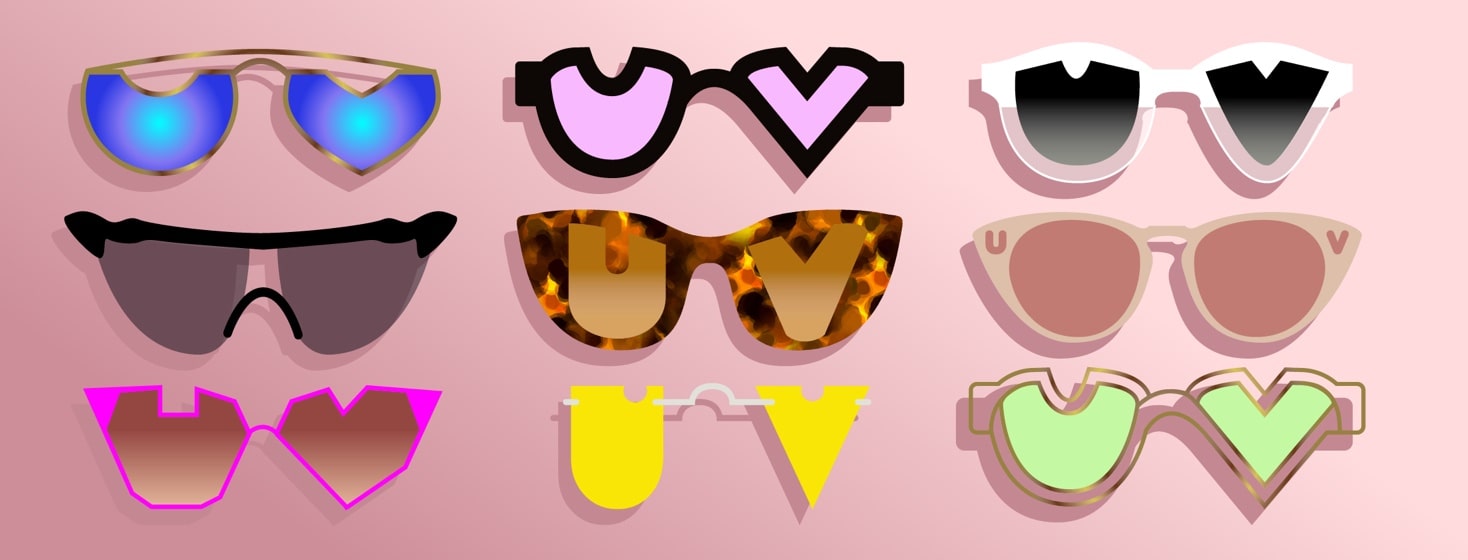Made it in the Shade? Sunglass Protection
Nothing says “cool” like a great pair of shades. In Southern California, where I grew up, picking out a good pair of sunglasses was almost a religious ritual. For many, they were a status symbol. Anyone remember Ray Bans or those Aviator glasses? What a cool pair of shoes meant to some, a hip pair of shades meant to many others. And dare I say, it is the same for many people now? For many a nice pair of sunglasses is more than just a fashion accessory, but also a fashion statement.
Sunglasses and UV protection
So, summer is around the corner (hopefully) and breaking out the shades may become more of a routine, although protecting one’s eyes from harmful rays should be a year-long concern as ocular melanoma is a very real danger and sun rays don’t take the winter off. But, what about sunglasses? How can they help protect your eyes from the sun? What kind should I buy? Intuitively, I have always thought that the darker the lenses, the more protection they provided.
I was wrong
Well, as often is the case, it seems that I was wrong. According to a recent online article, the darkest lenses don’t necessarily provide the best protection. “One of the biggest misconceptions I hear is that people think their eyes are protected by wearing very dark sunglasses. Nothing can be further from the truth. The tint of the lens has absolutely nothing to do with the amount of ultraviolet protection the lens provides,” says ophthalmologist, Marc Werner, MD.1
The truth about sunglass lenses
In fact, completely clear lenses have been made that give 100% protection from the sun. Darker lenses without sun protection only dilate pupils more and which puts their wearers at greater risk. This UV light exposes our eyes to those harmful rays, plus this can also lead to macular degeneration. Dr. Werner recommends picking sunglasses (whether clear or tinted) that protect from both UV A and B rays thus protecting sensitive eyes from ultra violet light. Just talk with your ophthalmologist and optometrist when picking lenses for your glasses.
Here are five, very important things to consider from the American Academy of Ophthalmology.2
- Choose sunglasses that provide UVA and UVB protection at 100%.
- Bigger lenses are better (they provide more protection).
- The color and darkness don’t matter, UV protection does.
- Polarized lenses cut glare, but don’t protect from UV rays.
- UV protection lenses are reasonably priced.
More things to consider
So, it seems I can be fashionable and protected as well. I can choose many colors and shades (or no shade) and still feel good that I am not exposing my eyes to harmful rays when I am at the company picnic, playing golf, or watching my child’s baseball or soccer game. It is also important to understand that harmful rays can also reflect off of the water. So, whether on the beach, in a boat, or trying to the land the big fish, it is also to understand that the angle of the sun’s rays. They can come from both above and below you. This is another reason why larger framed protective lenses provide better protection.
Always learning
I stand corrected, darker lenses don’t necessarily mean better protection. When it comes to sun protection, it seems the learning curve is always steep.

Join the conversation